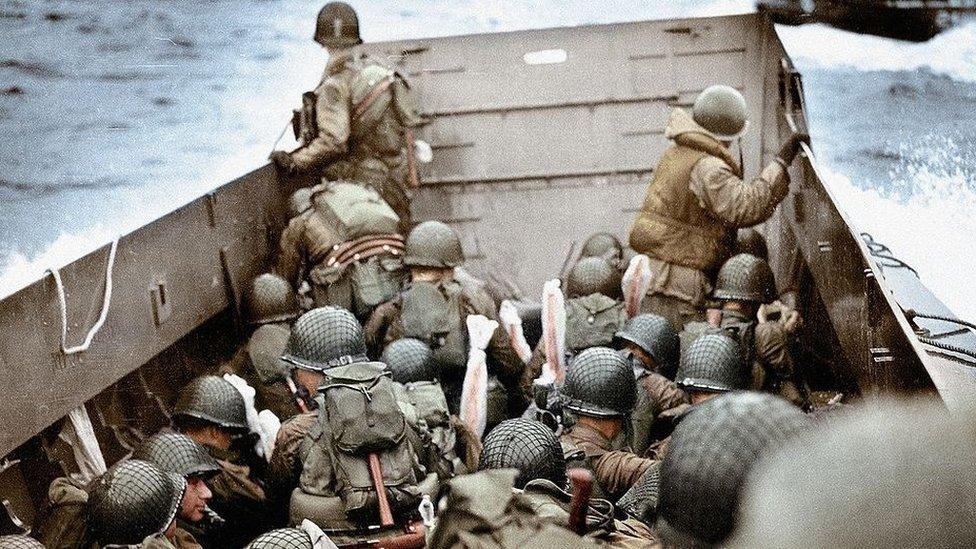'UK is on a knife edge', warns D-Day veteran
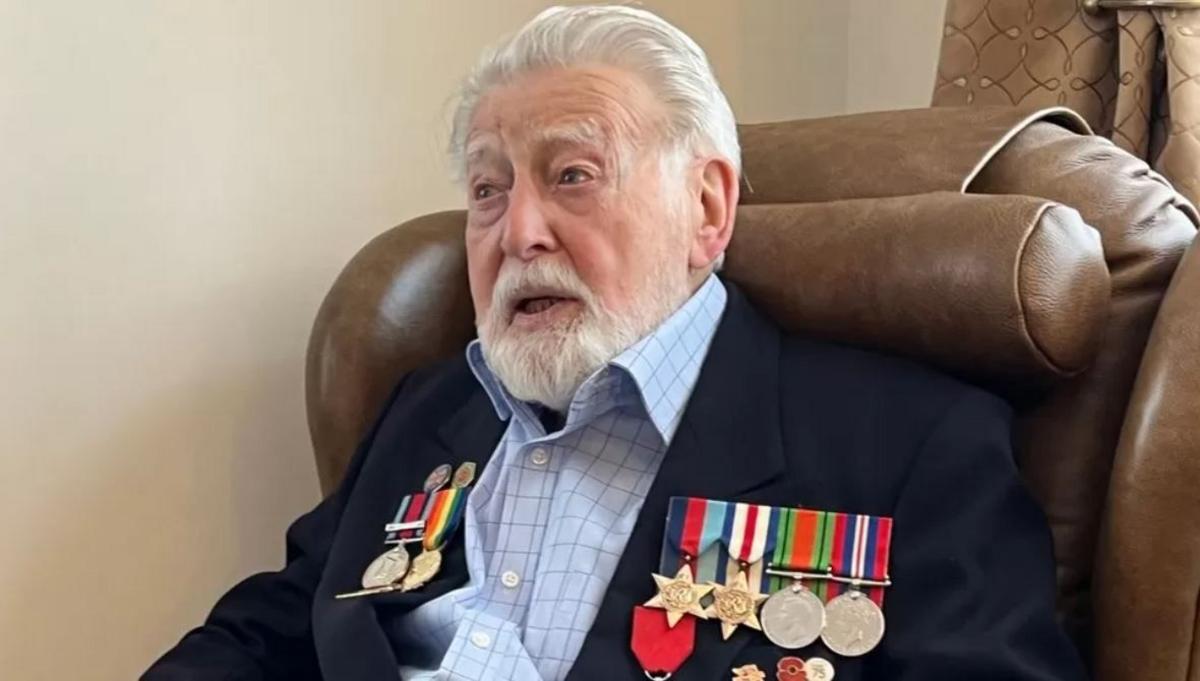
Les Budding was 18 when he took part in D-Day on 6 June 1944
- Published
A D-Day veteran has said he feels the UK is "on a knife edge" and "unprepared" for another war.
Former Royal Marine Les Budding served on board a landing craft charged with providing covering fire for the first wave of troops who stormed Sword Beach on 6 June 1944.
On the 80th anniversary of the landings, which led to the liberation of Nazi-occupied Europe in World War Two, Mr Budding had a stark message for Britons: "For many, this is the most dangerous time we have lived through. Another war is coming."
The Ministry of Defence said: "Our Armed Forces are always ready to protect and defend the UK and we continue to meet all our operational commitments."
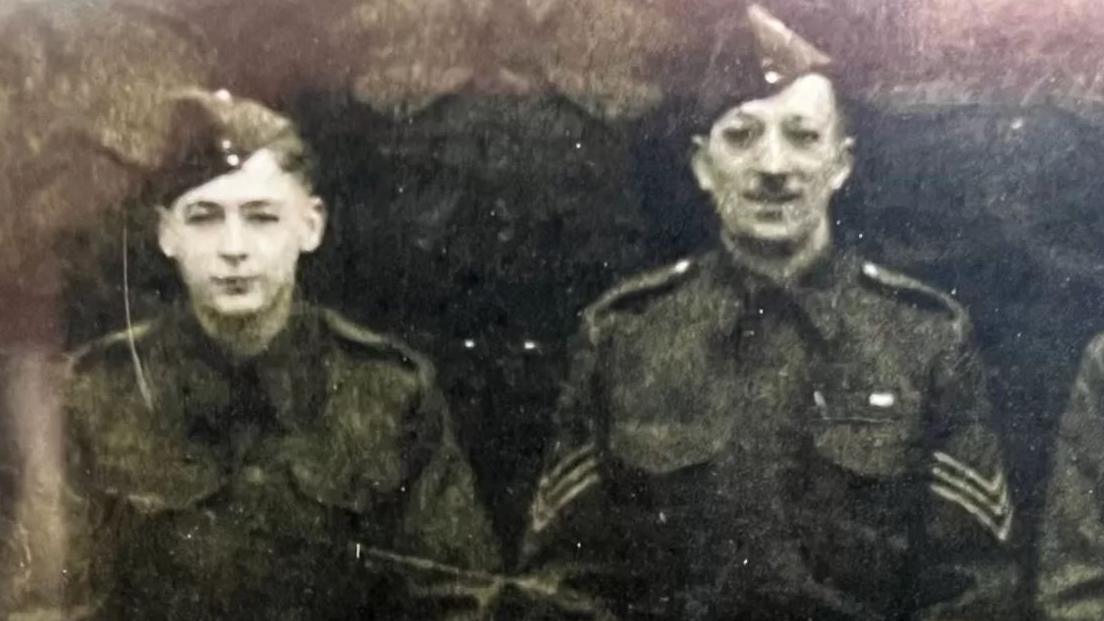
Les Budding, pictured left, with Sgt Jack Grimsey, who was killed the day after D-Day
Mr Budding, who turns 99 in July, said: "I am worried about the future. I am concerned about what young people will have to face in the coming years. We are no longer the force we were. We are not prepared."
He said he had spoken with "many other veterans" who, he said, hold similar views.
As of April 2024, there were 75,325 members of the UK’s regular Army forces (excluding Gurkhas and volunteers), according to the latest Ministry of Defence (MoD) figures, external.
In October 2019, just before the last election, there were 79,330.
Targets on how many new recruits below the rank of officer it should take on every year, set out by the Ministry of Defence, have been missed in almost every single financial year since 2010-11.
Mr Budding added: "We're living on a knife edge. People are living in cloud cuckoo land.
"Other countries like Russia and North Korea have been building up their armed forces but we have been sitting back hoping they will see sense. But it's not going to work."
The D-Day landings saw 156,000 troops from the UK, US, Canada and France assault five beaches in Normandy.
Mr Budding said he will be thinking about those who died; in particular his friend and married father-of-five Sgt Jack Grimsey, who was killed in action on 7 June 1944.
"Jack was a great man," said Mr Budding, from Lincolnshire. "He was a very strict but fair man. We all thought a lot of him."
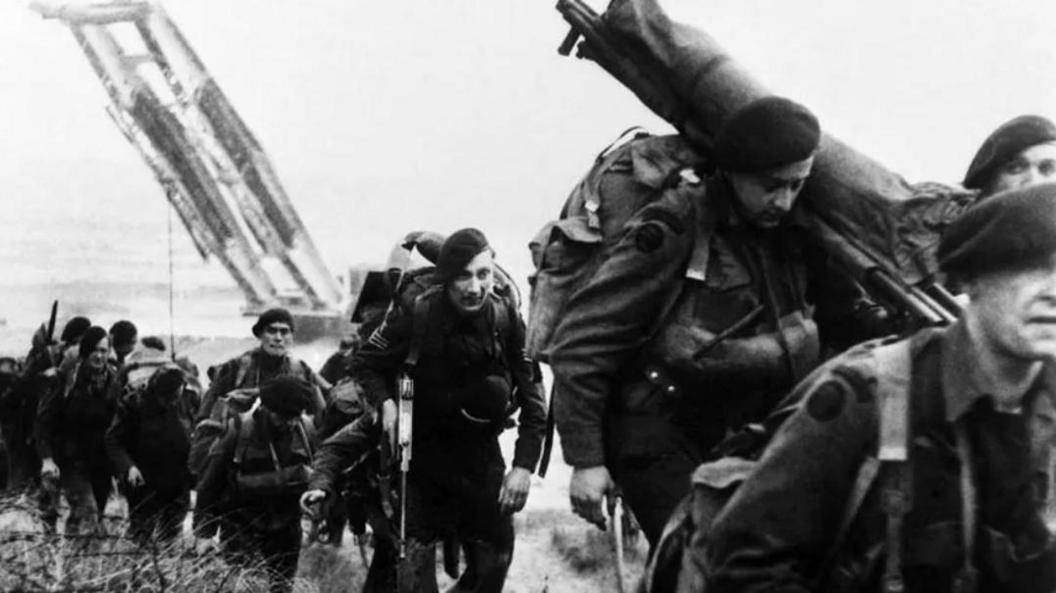
Royal Marines move off the Normandy beaches during the advance inland from Sword Beach
Mr Budding and 85 others boarded the 186ft (57m) Landing Craft Flak 34 in Portsmouth bound for the Normandy coast.
They were tasked with defending the main invasion force from attack from the Luftwaffe (German air force) as well as surface vessels - including high-speed, torpedo E-boats.
Mr Budding said: "It was known as the Trout Line - a defensive line that protected the anchorage.
"It was most important. Every night, without fail, the Germans would come out of Le Havre and attempt to attack the anchorage. Our job was to try and stop them."
A few weeks after D-Day, Mr Budding was injured while manning his gun on the ship.
"We were put at action stations," he recalled. "As I had done dozens of times before, I jumped into my gun pit. As I swung myself in, I caught one of my legs and snapped the bone."
Mr Budding was hoisted on to HMS Belfast, where he underwent surgery before being sent back to his ship.
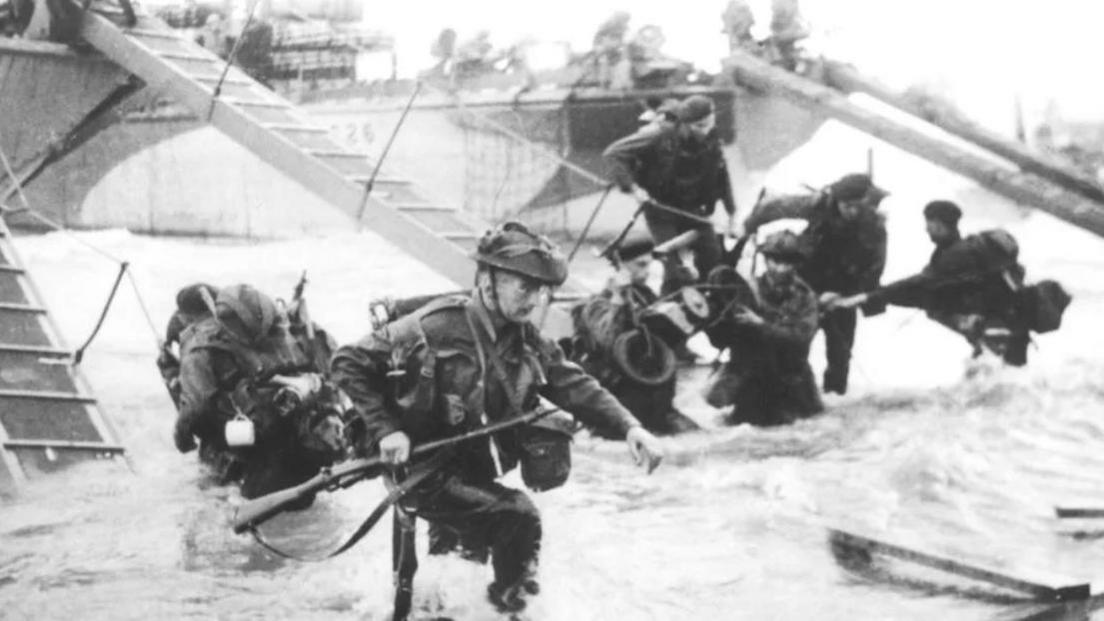
Commandos of the 48th Royal Marines at Saint-Aubin-sur-mer on Juno Beach during the D-Day landings
After the war, Mr Budding returned to his childhood sweetheart Doris and they married soon after. They were married for 71 years. Mrs Budding died six years ago.
Later, Mr Budding, accompanied by his family, will attend a special service of commemoration at the Royal Albert Hall in London.
Watching events on television and reading reports about on the 80th anniversary of D-Day has brought memories "flashing back", he said.
Follow BBC Lincolnshire on Facebook, X (formerly Twitter), external, and Instagram. Send your story ideas to eastyorkslincs.news@bbc.co.uk, external
Related topics
- Published3 June 2024
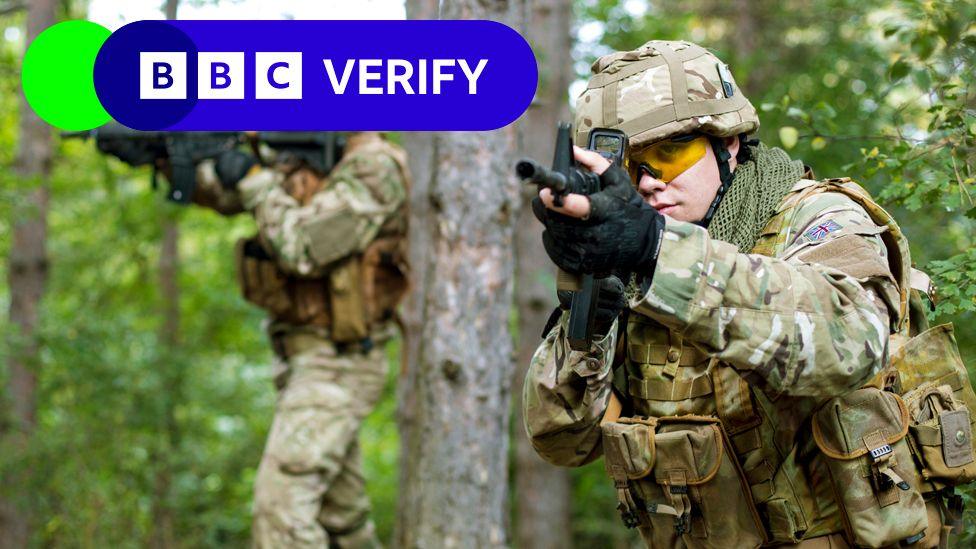
- Published6 June 2023
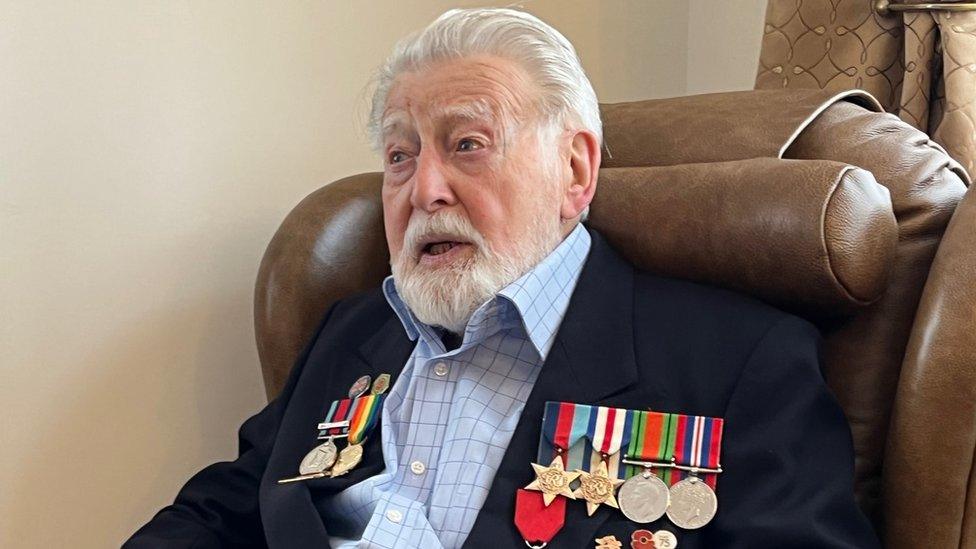
- Published4 June 2024
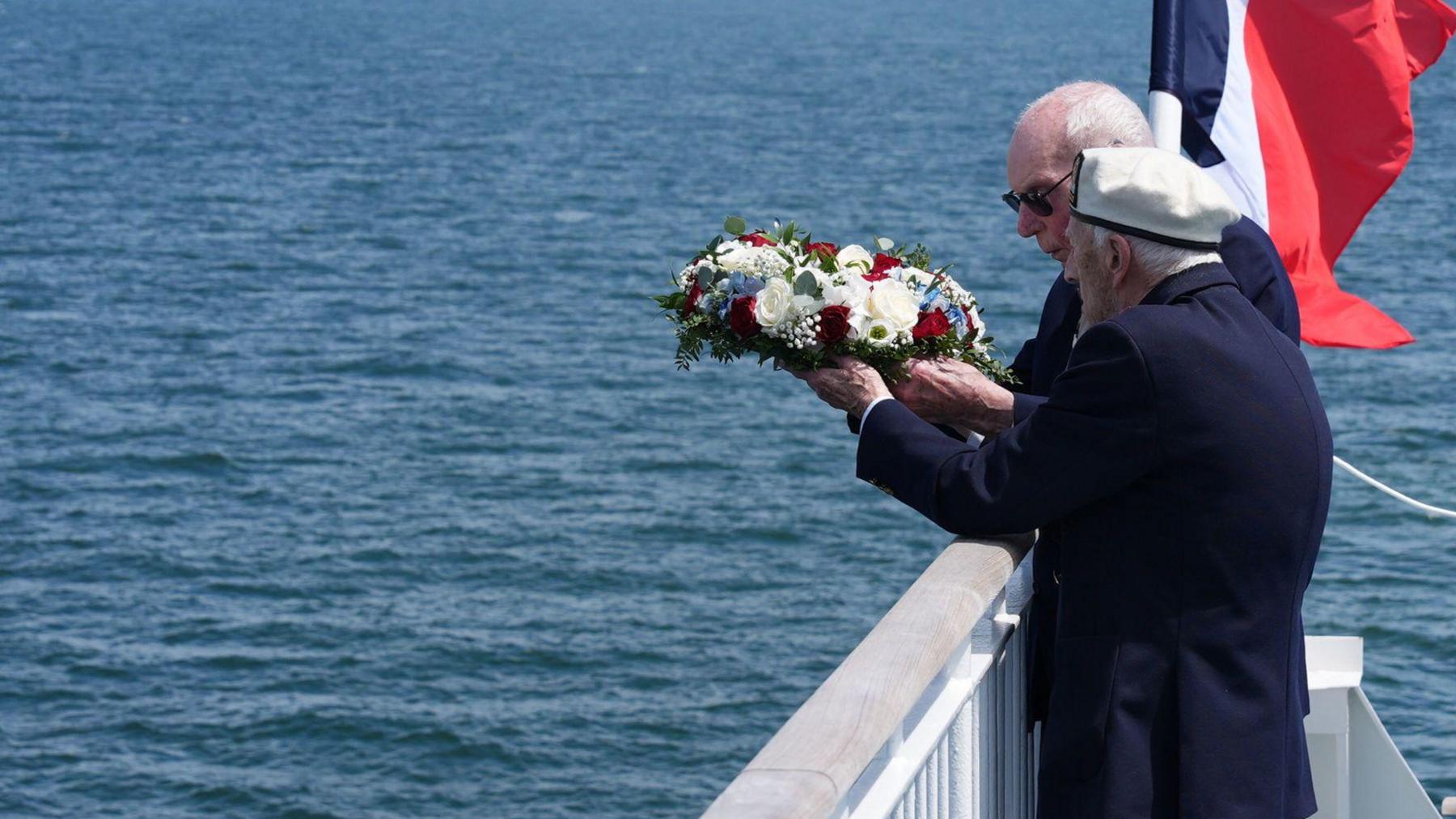
- Published5 June 2024
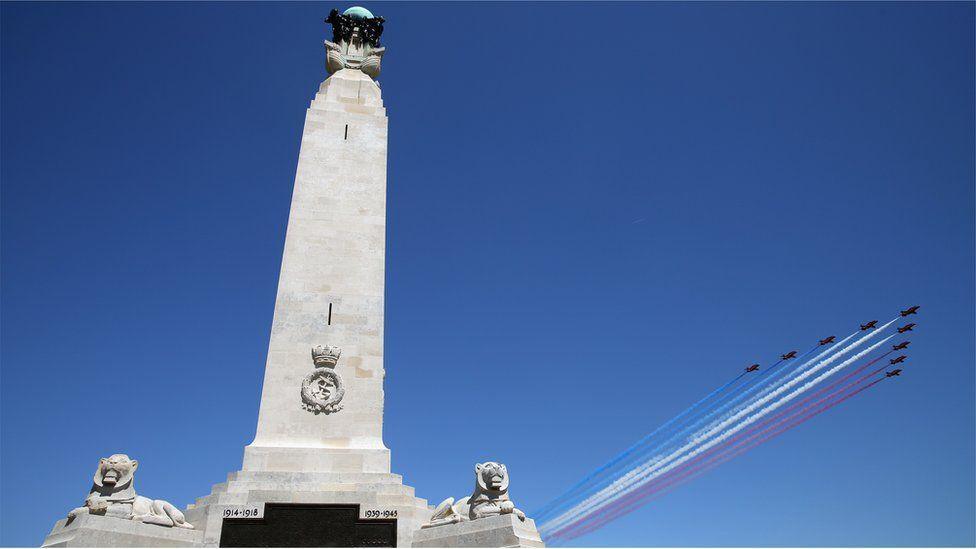
- Published6 June 2024
